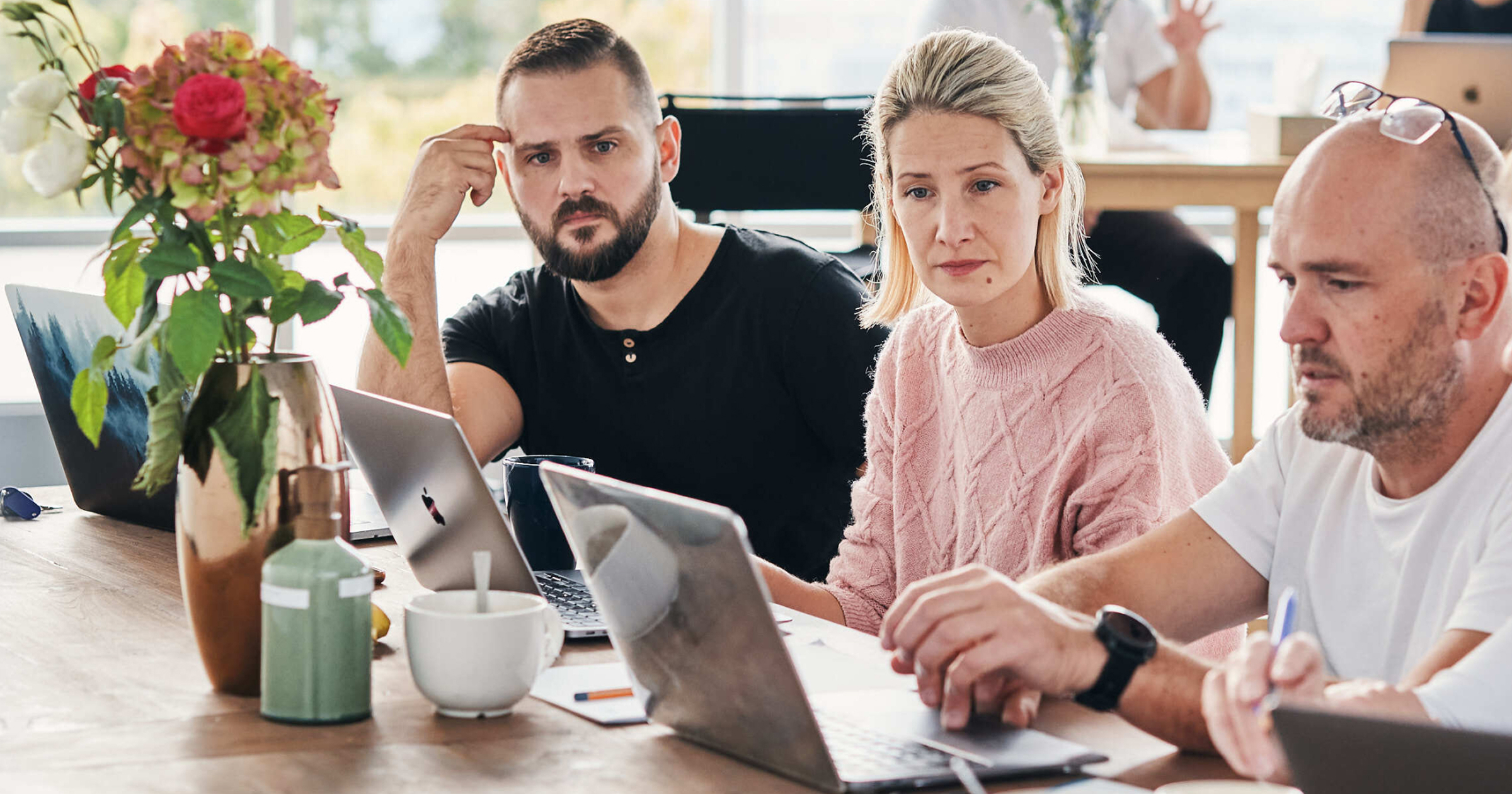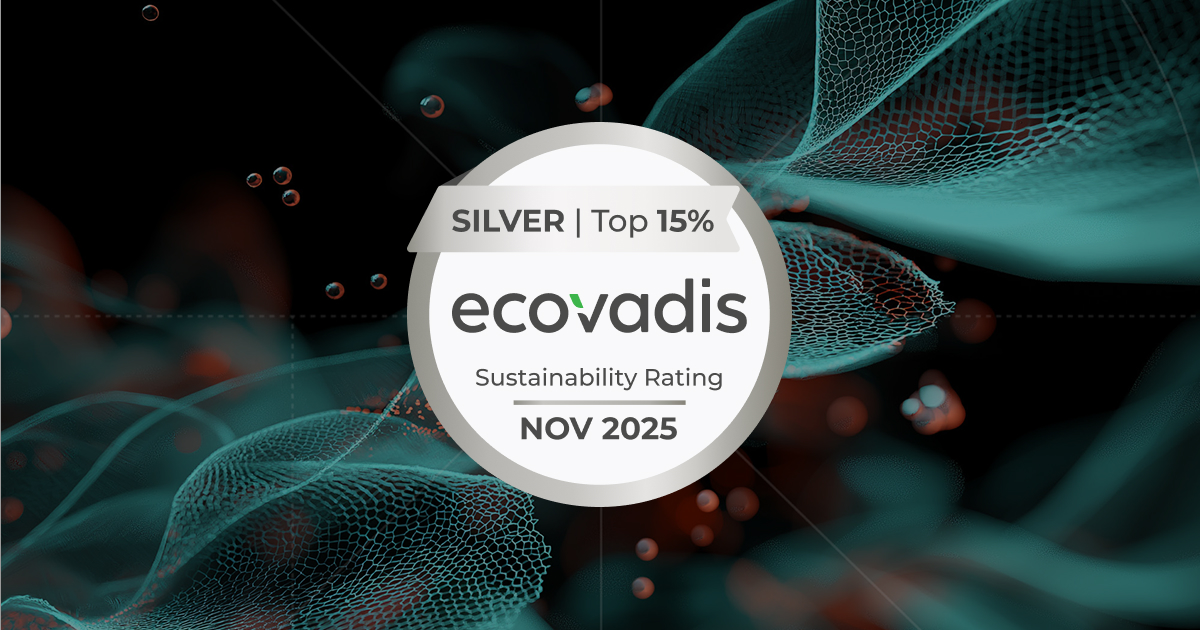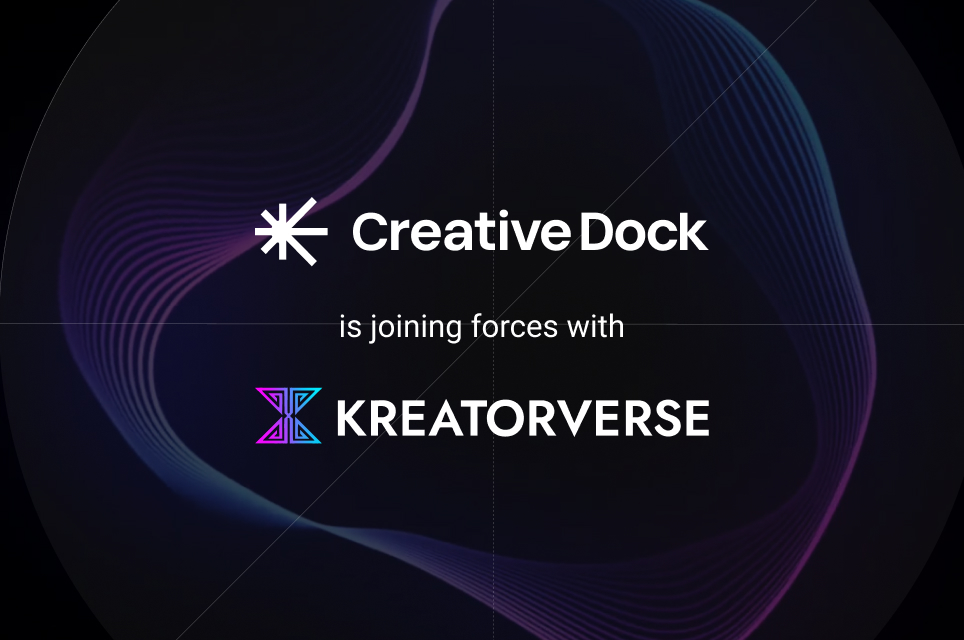Daniel Falque on venture building in Belgium, banking, corporate culture, and the importance of distribution
If you happened to come across Daniel’s resume with his name missing, you might think some parents had sketched a perfect career for their child. You can almost hear them advising: “Start from scratch, little boy, as an insurance salesman and credit analyst, and through tireless hard work, you’ll work your way up to board member and CEO of the strongest bank in the country.” Yet, Daniel’s resume isn’t a sketch; it’s a real career.

Creative Dock is growing, our ambition is to make Europe a digital leader and bring our products to a billion people around the world over the next five years. We are also forming a much tighter circle of people who care about digital as much as we do. Entrepreneurs, current and former CEOs of large banks or insurance companies, headhunters, open minds. We call them Pioneers. Gradually, we will be interviewing them on digitalization and other topics that are close to their hearts. Read an interview with another of our pioneers, Daniel Falque.

Creative Dock’s clients are mostly big corporations. As an ex-top executive of some of the biggest companies in Germany and Belgium, how would you assess the willingness to hire an external venture builder to innovate for them?
Generally speaking large businesses in Belgium are quite reluctant to hire external companies for venture building mostly because the concept as such is not widely known. My experience with my former employers — large corporations with sufficient means — is that they are quite self-confident in themselves designing and activating “new ventures”. In other words, what they do themselves, they do best, they believe.
So hiring somebody for venture building would be like a trip to a different universe.
Yes, indeed. In my last job, I honestly don’t think that it would have been necessary. Because we ourselves, the senior management of the company, had to do our own strategic exercise ourselves. Which ultimately ended up in the highly successful phygital distribution avenue that we know today. Certain things you actually better not outsource, the definition of strategy is one of those. You can of course ask here and there for external help, for components or methodology, and inspire yourself from examples and models from the outside, but ultimately the new story has to be yours. As a board member, in case I would notice that a CEO entirely relies on a third party’s vision, methodology and implementation tactics, I would become nervous. So, the profound transformation of our bank and insurance company needed to be our story, from the beginning to the end, with all needed trial and errors, corrections and surprises that ultimately taught us a lot and even strengthened our team(s). Besides, in terms of communication, how can you be credible and inspiring amongst your people if you only spread somebody else’s words? We luckily had very solid talents within our walls already to make our story come true, but we also carefully hired top talents in various industries mostly in the fields of AI and data sciences. Fresh blood which we then preciously kept with us because being key in the long run (> 100 data scientists).
You studied international politics and diplomacy. Don’t you regret not becoming a diplomat and ending up in banking instead?
I don’t regret it at all although I remain interested in much more than just finance. To be honest, I joined the financial industry by coincidence, as a matter of fact, because Deutsche Bank in Belgium was looking for somebody speaking German, which I happen to do, that’s all. Yet, in hindsight, did I need to have a Nobel Prize in mathematics to run and bring financial institutions up to the next levels? Obviously not. So possibly indeed, my diplomatic education helped me a bit in that, who knows…
How much has banking changed in the last ten years and how much is it going to change in the next ten years?
Banking as a product didn’t change that much. Three dimensions of it changed dramatically in recent years though: regulation, distribution and — the most recent one — sustainability.
And if you were to pinpoint among those three the biggest change?
Distribution. Is not necessarily the “biggest” but definitely the most transformational change. Let’s face it: a mortgage now and a mortgage in the nineties, the product has hardly changed. Same for car insurance with — I admit — here and there are some additional features and gimmicks. Fundamentally the purpose of financial products has remained identical over the last decades: financing and protecting the client’s assets. Distribution, however, has dramatically changed over the last years, with a sudden acceleration since the mid-’10s. Originally due to new technology, and now also due to the client’s more vocal expectations. In the financial industry, it is the distribution that will make the difference between the winners and the others. It is already the case today and is not just a matter of budgets: it is all about relevance and convenience, for the client of course.

Does that mean that the clients were the driving force of the change?
In the past, a bank client was genuinely sticky. As a bank, you could deliver a lousy service and demonstrate little effort, still, you would keep the vast majority of your clients. Honestly, at that time most of your clients didn’t know better. Online sales and services have changed this situation completely over the past few years though. As a matter of fact, the online business changed the client, more precisely the client expectations and attitude towards service in general and their banks in particular.
Being commercially more spoiled because meanwhile used to total and instant satisfaction, clients now compare and judge you and your output all the time, with little room for friction. Now — here — right — and preferably for free! As a natural consequence, clients have gradually become more impatient, more demanding, more vocal and … less loyal! So, the cosy stickiness to their traditional service providers that I just mentioned is gradually disintegrating, with the risk of reshuffling some industries like the financial one.
How do people who work in the banking industry view the digitization of banking? With automated or semi-automated investment platforms and other things which will quite likely cause fewer jobs in the industry?
Every change not properly explained inevitably generates anxiety and stress, that’s normal. So, as the CEO of the local entity, I worked hard to communicate our plans and intentions to the broader audience, with maximum transparency also about our doubts and failures. This made our message more authentic, more human, nourishing gradual yet spontaneous adherence by the staff.
As a matter of fact, I do believe that people follow people, not titles or functions. I therefore also made 2 promises to the staff. First, we massively invested in programs to help every single employee quickly get up to speed in the new environment (talent gap diagnosis, training, conferences, practice on the job…), and secondly, I committed to systematically brief them all about our progress, successes but also obstacles.
Did it work?
Yes, it did, even above our expectations. And that, without having to make anyone economically redundant. Firing people is technically probably the easiest thing a manager can do. I personally have very little respect — to say the least — for managers who start in a new business by firing a percentage of their existing staff. Some of them even call this a quick win, how horrible is this? And how destroying is this for the commitment of the ones remaining on board? The HR route that we followed was certainly not the easiest one, I admit, and it required different ways of thinking and organizing by our managers and by our HR specialists, but it worked. With a strong impact on our results and on our culture.
What does culture mean for you? Is there a way to teach your employees certain culture?
Company culture is a shared way of thinking, feeling “things” and situations, and interacting with each other, in the best case to reach a common goal. I do not believe that you can teach culture to people, this would imply that you want to enforce it, which — to my experience — does not work. Your people are not children, they are adults with their own experiences, beliefs, critical sense, problems and plans. As a manager, you can write as much as you want about the desired culture but the only thing people will really observe and remember is how you act, on the spot. You may briefly impress people with words and powerful speeches, but the truth for them will be while eating the pudding: your and your manager’s facts and behaviour, preferably in a real-life context.
For leaders, this requires the courage to always speak the truth and sanction — positively and negatively! — those who do not act upon the required ethical and moral standards. Provided of course you, as a top leader, have made your expectations very clear in that regard, and act upon them yourself. Beware though, in my experience changing a culture takes at least 5 years, depending on the size of your organization and the quality of your various management layers.
What do you think about cryptocurrencies?
A brilliant idea yet potentially dangerous because insufficiently regulated and not yet mature. Also, a hype for many as we have seen in recent days. And a meaningful potential in areas beyond the financial industry, such as the fast arising metaverse.
Is the only way regulation, then? If it was regulated enough, do you think states and corporations would have their cryptocurrencies?
This is a personal view of course, but when it comes to money — which is nothing else than the materialization of trust — I believe that smart and realistic regulation is a need. Past and recent history confirms this — money as a tool is too critical and dangerous to leave uncontrolled. This being said, I do believe in the future of cryptocurrencies in our economies in the future, but at this stage, they are not sufficiently stable and mature yet to be widely spread just like that.

What do you think about other fashion waves in finance such as peer-to-peer financing?
Even though crowdfunding is present in Belgium, we missed the wave of peer-to-peer financing because bank credit is easy and cheap here. On its side, private equity as a funding alternative for more professional financing needs works very well, but for larger tickets.
Besides habit is there any other explanation why people tend to rely on banks in this respect?
Since bank credit is widely spread because cheap and abundant (lots of liquidity on the bank’s balance sheets), those who still turn to peer-to-peer financing rather do this because of their unfavourable risk profile with banks or already excessive debt level. And here comes culture into play: Belgians are quite conservative in these things and will prefer to review their business plans in order to finally get their bank credit rather than activating other types of more remote funding alternatives, which they are not familiar with.
If you had the knowledge and experience you have now, would you change anything in your career?
My work-life balance has been a disaster for too long. It is okay to work hard for a while, it is less okay for you and for your family to be in overdrive for too long. Which has been my case a couple of times during my professional life. I started my career in the early 90ies, a time when the internet did not exist. The world, the way of working and the expectations towards employees were different, colder and stiffer. Our universe was limited to our immediate environment, terribly limiting possible opportunities because they were simply unknown.
Today, technology allows you to be much more performing and efficient than in my time, and the emerging mindset grants a more attractive and respectful place for the individual in his work environment, I believe. On that basis, with the fantastic range of possibilities offered by the internet, I would certainly work hard again but in a less linear way than I did, probably exploring more and different opportunities all along.
You have two kids, who are in their twenties. If they came up to you, what advice would you give to help them succeed?
They are grown-up adults now, so I have already given them some advice. Namely, if you have solid professional ambitions, don’t fool yourself, you will have to work hard. But (1) like what you do (or change), and (2) avoid longstanding peaks (or change!). Not sure they believe me, I was not precisely the most credible model for them… (laughs)
Was your attitude to education the reason why you speak five languages?
To be honest, I learned them rather casually without even realizing it. First, French is my mother tongue. Then I learned Italian because my father got a job in Italy in the sixties and even though my parents didn’t put me into Italian school, I learned the language on the street. The international school which I joined by then followed a bilingual system, so I learned German without actually noticing it as well. And Dutch I learned once back in Belgium while socializing with friends and others in my private life. My wife is Flemish, it also helps! Finally, English, being all over the place, you really would have to try hard not to learn it naturally… In other words, I learned 5 languages without opening many grammar books, I have to admit.
Do you still have some dreams?
I have one. It is to keep the very comfortable balanced life I finally reached, and spend more time in our house in Southern France with my wife, welcoming our kids and friends, once I will have managed to convince her to stop working! (laughs)



.webp)










%20(1).jpg)































































